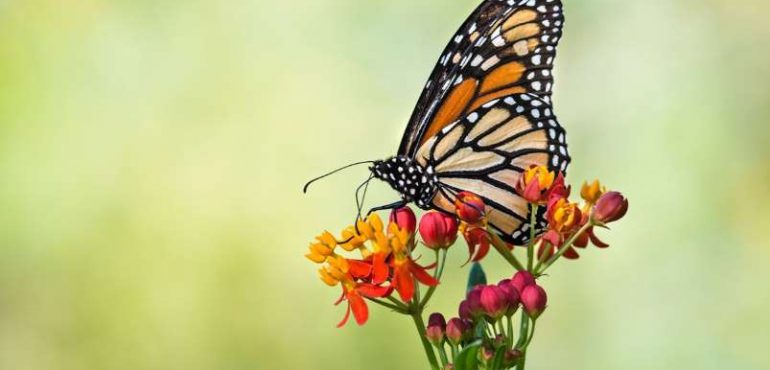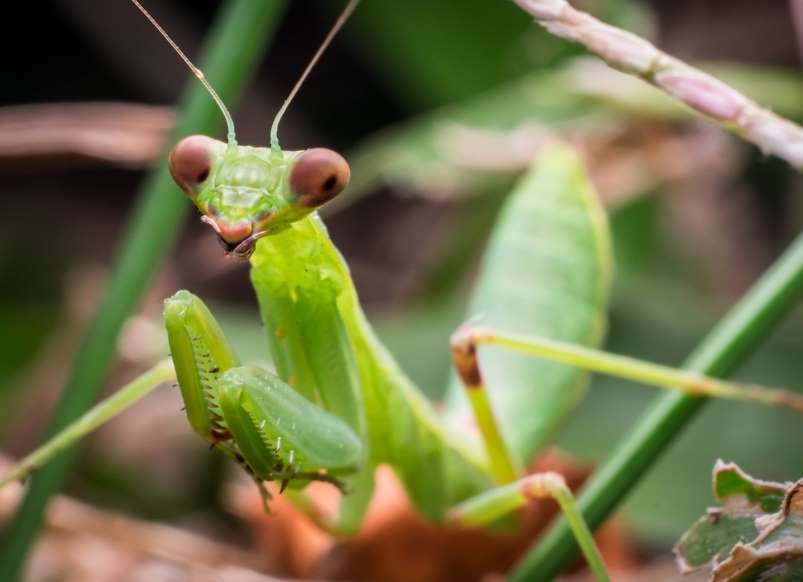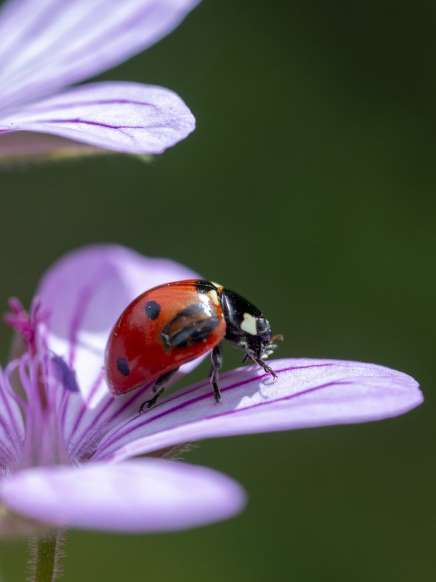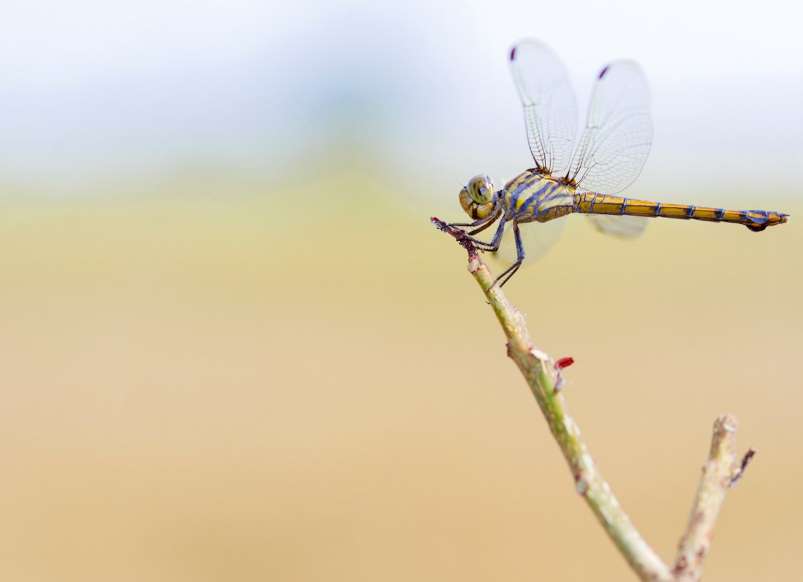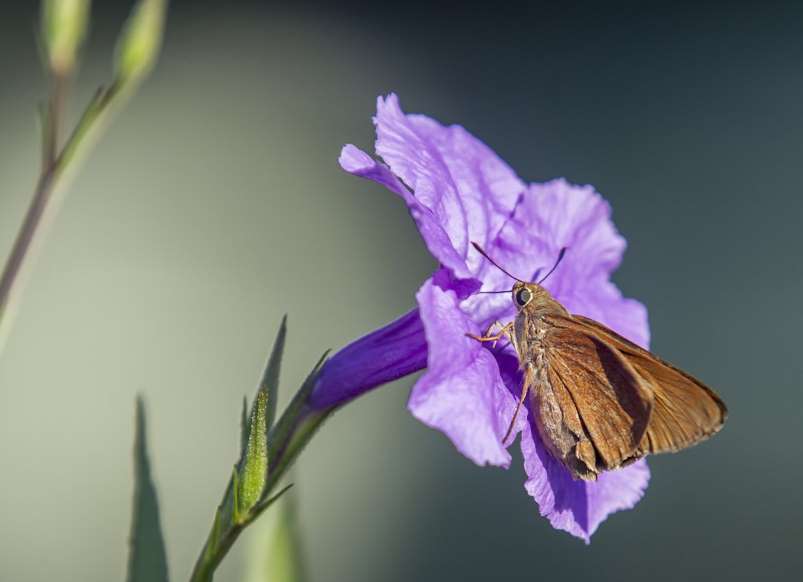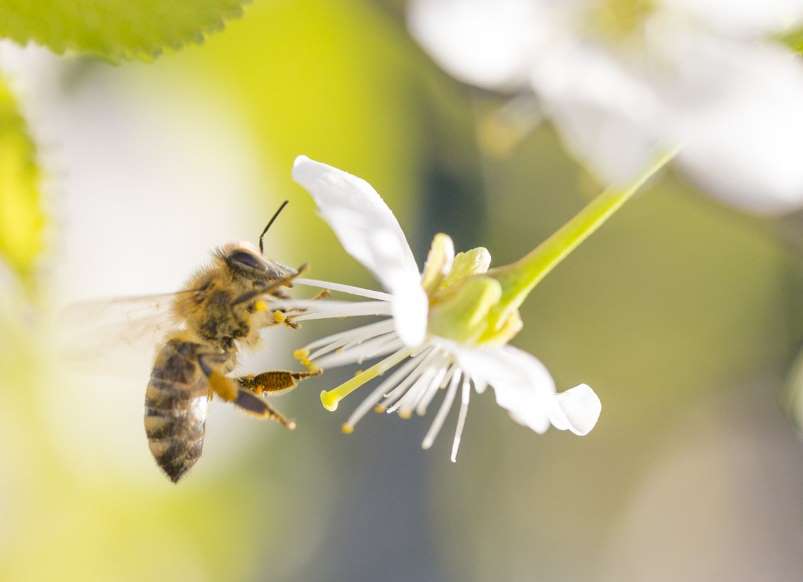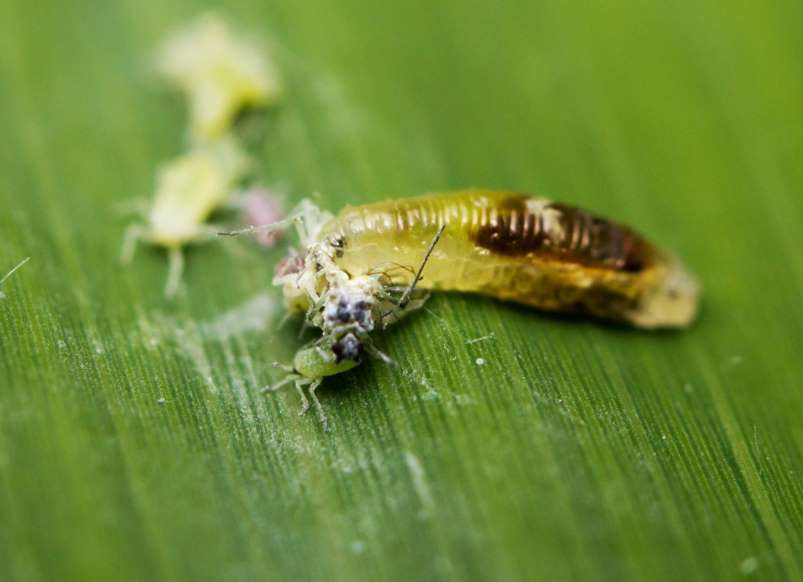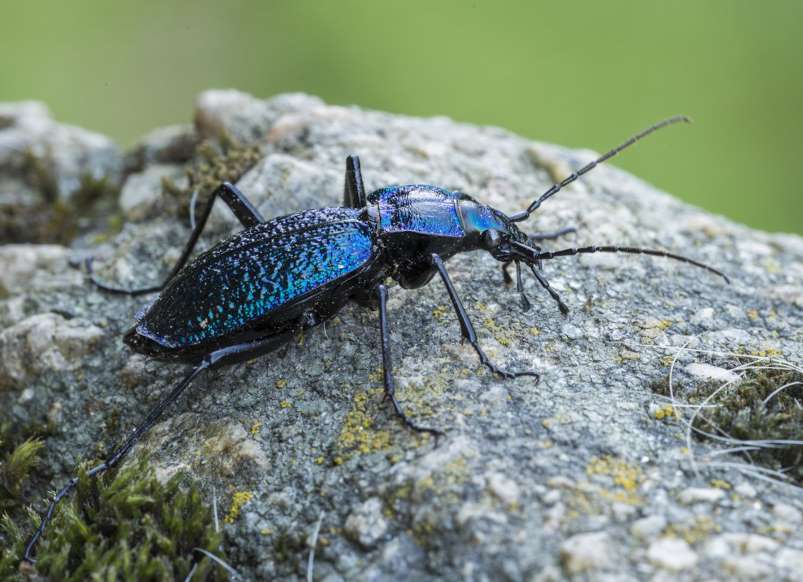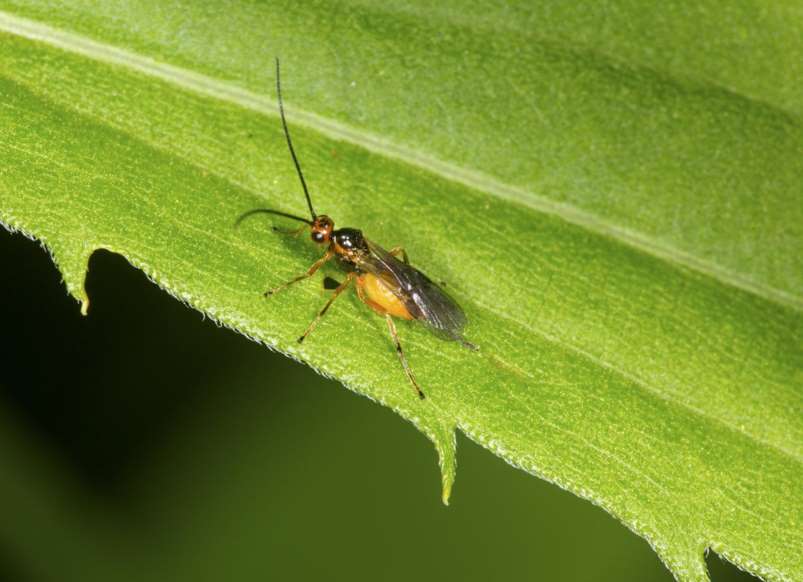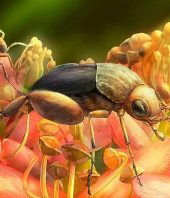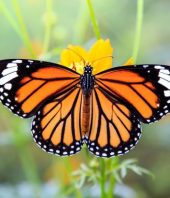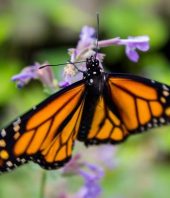Butterflies
The mere presence of butterflies adds a heavenly vibe to any garden, but these graceful insects also help beautify plants by pollinating them. One of the best ways to attract a few of these magnificent creatures is by planting liatris, spiky flowers that some butterflies find very appealing.
Praying Mantises
Praying mantises are like bug-eating bouncers for the garden. They devour dozens of difficult plant-eating pests. DIY picklers may run across them most often, because they have a particular penchant for the scent of dill. So plant some dill yourself to turn your garden into a hot property for praying mantises.
Ladybugs
An insect best think twice before asking a ladybug out to dinner. The suitor could end up as the meal, as could a lot of those other bad bugs lurking in your garden. Get on a ladybug's good side by adding some cilantro, dill, or fennel to your garden mix. Soon enough, a few of these colorful omnivores will head on over to keep the bad bugs at bay.
Green Lacewings
The larvae of the green lacewing are nicknamed "aphid lions" because of their fearsome appetite for aphids. They are one surefire way keep your garden free from those pesky pests. You can attract adult green lacewings—and ultimately their larvae—with marigolds, which have a tasty nectar they find delectable.
Minute Pirate Bugs
For serious garden infestations, who should you call? The minute pirate bug. Other predatory insects take out bad bugs only up to the point of satiety, but minute pirate bugs can continue to kill even when they're full. Growing alfalfa is an excellent way to recruit minute pirate bugs to guard your plants.
Hoverflies
Hoverflies may look like bees, but they're actually more like humans in that they eat both meat and plants. That means they offer up a one-two punch of pollination and pest annihilation. Orchid flowers will draw these big-time beneficial bugs to your garden.
Dragonflies
No insect detrimental to your garden will be safe from the mighty dragonfly, with its very broad taste in insects. Adding a pond with plant vegetation to your garden is the best way to get them to swoop down. Don't worry about mosquitoes setting up shop. Dragonflies devour them too.
Moths
Moths are yet another winged creature that plays a big role in pollinating plants. They also serve as food for your other beneficial bugs. Plant some nettle plants to attract them, and before long they'll join the good-guy army of butterflies, hoverflies, and dragonflies in your garden.
Bees
Bees aren’t just a good thing for the garden, they’re crucial for the environment. While they’ve earned a bad rap amongst humans who are afraid of being stung, the truth is they’re too preoccupied pollinating flowers to care about stinging anybody. Lavender, chives, and coneflowers are just a few types of plants that will attract the buzzers.
Aphid Midges
Never fear aphid midges are here if your garden has been invaded by aphids. Larvae from the female alpha midges poison the aphids and feed on them for a few days. If the midges don’t appear on their own when you face an aphid infestation you can purchase them to get rid of the pests.
Ground Beetles
Spotting a ground beetle in the garden is a happy discovery! The nocturnal critter eats ants, aphids, caterpillars, maggots, and slugs—plus a few species even eat the seeds of invasive weeds. The next time you discover a beetle just let it be.
Predatory Wasps
You may not want to encounter a wasp and its stinger, but predatory wasps in the garden are actually a good thing. These feisty stingers not only pollinate flowers, but they attack the crawlers that infest your garden. Braconid wasps are useful for controlling caterpillars, while tiphiid and scoliid wasps prey on Japanese beetles and June bugs.
Source: MSN Lifestyle, Full Article

